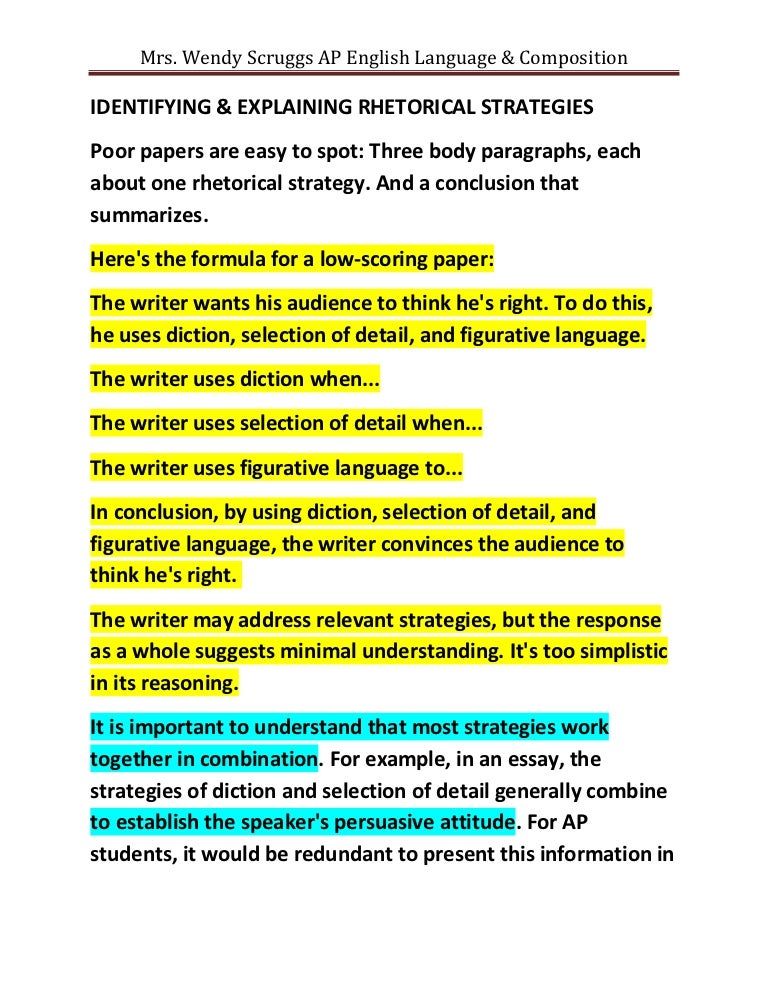
Rhetorical criticism is an epistemology or way of knowing many scholars find effective in coming to an understanding about the communication process and the artifact under study. (An artifact or text is simply the thing that the critic wants to learn about. Artifacts can be, for example, speeches, songs, sermons, films or works of art.) Sample Rhetorical Analysis. Seeing rhetorical analysis in action is one of the best ways to understand it. Read the following sample rhetorical analysis of an article. If you like, you can read the original article the student analyzes: Why I won’t buy an iPad (and think you shouldn’t, either) Rhetorical Critique 1. Demonstrate familiarity with/understanding of basic terms of rhetoric; 2. Recognize the rhetorical strategies and stylistic choices made by experienced communicators, and by your peers; 3. Practice incorporating similar rhetorical strategies in your own rhetorical context; 4
Sample Rhetorical Analysis - Excelsior College OWL
Rhetorical criticism is the analysis of a broad range of items related to using language to have an impact on an audience. This is often but not always applied to writing, where the author intends to have a certain effect on readers.
Rhetoric in general is very broadly defined as any aspect of speech or writing that reaches out to an audience. Criticism, as it is defined for rhetorical criticism, literary criticismand other types of similar analysis, is the process of examining something for its fundamentals or underlying nature.
The criticism observes units of language and other auxiliary products of speakers or writers rhetorical critique examine the intent as well as rhetorical critique context of a piece of an individual communication to an audience.
The popularity of rhetorical criticism has grown and diminished over time throughout its history in human civilization. In some ways, the rise of this type of criticism is as old as the common usage of written language, rhetorical critique. Some date this discipline back to Plato and the societies of ancient Greece. Academics use this type of criticism to understand how communicators use symbols to affect their audiences. These researchers can study text, film, rhetorical critique, or audio recordings to find rhetorical symbols for analysis.
Generally, rhetorical critique, those who study rhetoric will build a collection of rhetorical critique, try to work them together into a central thesis, rhetorical critique, and gradually develop a meta-narrative regarding the ultimate nature of that rhetorical critique, writing, or rhetoric-based art work, rhetorical critique.
Some experts have built specific categories of rhetorical criticism. This type of study examines both the visual and auditory components of rhetoric in search of more information about how communications will be received by a large group of people.
The products of rhetorical criticism can take many forms. Research papers may draw a great deal from this kind of study. In some academic departments related to communications, students may be tested on their responses to this kind of analysis. Some academic journals may publish articles related to the study of rhetoric in contemporary societies. All of this adds to the general body of work around the use of rhetoric in diverse scenarios and contexts. Leverkuhn Last Modified Date: February 21, Please enter the following code:.
Login: Forgot password?
5.5. Conducting a Rhetorical Critique
, time: 13:28Rhetorical criticism - Wikipedia

· Rhetorical analysis is a form of criticism or close reading that employs the principles of rhetoric to examine the interactions between a text, an author, and an audience. It's also called rhetorical criticism or pragmatic criticism. Rhetorical analysis may be applied to virtually any text or image—a speech, an essay, an advertisement, a poem, a photograph, a web page, even a bumper Estimated Reading Time: 5 mins · Rhetorical criticism is the analysis of a broad range of items related to using language to have an impact on an audience. This is often but not always applied to writing, where the author intends to have a certain effect on readers. Rhetoric in general is very broadly defined as any aspect of speech or writing that reaches out to an audience Sample Rhetorical Analysis. Seeing rhetorical analysis in action is one of the best ways to understand it. Read the following sample rhetorical analysis of an article. If you like, you can read the original article the student analyzes: Why I won’t buy an iPad (and think you shouldn’t, either)
No comments:
Post a Comment